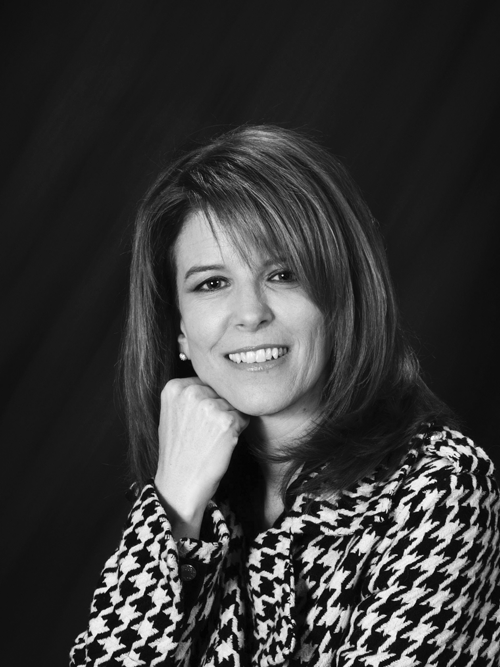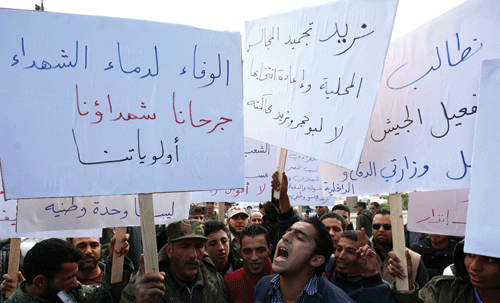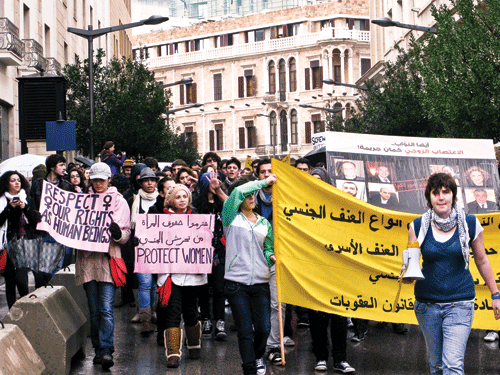The economic crisis has hit, among other things, the pockets of potential Masters of Business Administration (MBA) candidates, many of whom are choosing to postpone their studies or seek alternatives to an MBA program that entails taking a minimum of one year’s leave — a luxury in these testing times. To discuss the challenges business schools are facing, Executive sat with Lisa Piguet, head of MBA Admissions at IMD, a worldwide leading business school based in Switzerland.
What are the top three concerns of MBA business schools?
One concern is the decline in applications. Looking at GMAT (Graduate Management Admission Test) data, the participants for the age group 18 to 24 years old is growing and the test participants of the older age group is declining. In Europe, MBA admissions at European business schools require previous work experience so the average age of the classes are older and they are seeing a slight decline in applications. The economic situation is definitely a concern and impacts the drop in applications. Another concern is the return on investment. It is expensive to do an MBA and I think people are looking more at that now as a big issue. When they spend $120,000 on an MBA program, they want to know that it will pay off in five years. The third concern is no one knows where the market is going. Everyone is sitting on the fence.
So as it becomes more difficult to fill seats, is competition increasing among business schools?
Business schools in Europe have increased their class sizes a lot in the past five years because their MBA program is a money making machine. The competition has stiffened because of the declining market conditions and the class sizes increasing so compromises are being made in some places. When I see certain schools accepting people that normally would be declined in the past, I am really shocked. They are doing that to increase their revenues. At IMD, we have not increased our class size since 1995. We kept it at 90 because we felt we cannot mass-produce leaders. The MBA program at IMD is a brand and not a moneymaking machine for us and we rely on executive education for our revenues.
Are MBA graduates still able to find jobs in a weakening global economy? What changes have you noticed in terms of job placements?
I know a lot of people are afraid now. The United States is really suffering in terms of career placement, with some universities only seeing 50 percent placement. At IMD, as we only take 90 MBAs and we are very selective, our program is niche so our placements results are always really high, even in an economic crisis. What I’ve seen in the 10 years I have been at IMD is a change in how companies recruit. They used to look for “talent positions” in which graduates would be hired into a two year rotational program covering marketing, finance, accounting etc. Now recruiters are moving away from that and looking for actual positions.
E What have you witnessed in terms of number of applications since the economic crisis?
We witnessed a record number of applications in 2009, shortly after the crisis began, but it’s been down since. Most schools worldwide are down on applications right now because people are really concerned and they are staying put. It’s really bad in the US. I have witnessed, though, that the quality of applicants has also changed. It’s as if the candidates who were not so serious about applying went away. At the European Business Shools Meeting, which took place in June in Copenhagen, all the top European business schools were witnessing the same trend.
Who is paying for the MBA program? Have you seen any change since the economic crisis? What financing facilities does IMD offer?
The only slight change I have seen is that candidates are more likely to have a ‘Plan B’. The company will not pay for the MBA but the candidate negotiates a deal whereby he can go back if he needs to. I’m always surprised to see a lot of times the MBA [students] come with cash in hand. IMD has a loan program, which lends up to 65,000 Swiss francs ($71,000) — roughly half the tuition fees with living expenses — for the candidates that qualify. No co-signer is needed for the loan and it has to be paid back in four years. We recommend that potential candidates look for scholarships in their respective countries, as it is much better to get a scholarship than a loan.
What do you teach at IMD when there is a lack of visibility?
The economic crisis had several causes but one of the things I think caused the crisis is people being naïve and managers not being able to react. We are actually changing the program for 2012 and the new program is essentially looking at how you train a manager to react properly in a crisis situation. We are now adding a cyclical learning process whereby candidates do something, put it into practice, reflect on it and then go back and do it again. It is an active learning cycle. At IMD, leadership runs through the entire program; it’s our unique selling proposition. We provide candidates with team coaches and they are given tasks such as going to the Alps in January when it’s freezing and they are filmed completing their tasks and then they debrief with their group.
Where do IMD graduates end up?
78 percent of our 2010 graduates ended up working in industry, with the remaining 16 percent in consulting and 6 percent in financial services. This gives IMD a huge advantage during the financial crisis. Most programs in Europe are heavily weighted to the consulting and financial industries.
What do you have to offer for older business professionals?
The executive MBA is an option and we also offer in-company programs and open programs which could last one to two weeks. The biggest open program takes place at the end of June, with 500 top executives from around the world coming for one week. We offer different streams such as leadership and strategy and it costs 15,000 Swiss francs ($16,330) for the week.
How many candidates are from the Middle East (ME)? And how do they fund their studies?
Only 8 percent of the candidates are from Africa and the Middle East, with the vast majority from Lebanon, but it is a percentage we want to grow. We’d also love to have more women from the ME on the program. ME candidates have predominantly completed their undergraduate degrees in local universities — for Lebanon, it is the American University of Beirut — and often follow it with a master’s degree from a non-local university. For Saudi Arabia and Kuwait, most graduates complete their undergraduate degrees in the US. As for funding, Middle East candidates normally pay for themselves.
Do you aim on increasing your intake of students from the Middle East?
Yes, it is one of our huge focuses as it is a growing region. The biggest issue we have is GMAT scores. Some countries have scores of 300. I still don’t understand the score; so many are educated in the United Kingdom and the US. For example, in Kuwait and Qatar, they receive great education in the US but they have GMAT scores of 350. We can’t take these people. In Saudi Arabia, it is getting better. An MBA is something quite new for them. There are not enough test preparations centers, but awareness is rising and we are trying to build that up in the Middle East and Africa.
Would you consider doing a partnership in the Middle East similar to what London Business School and New York University have done in the UAE?
No, we are not considering such a partnership as IMD is just an 11-month program and we already do so many international projects. There are roughly 16 multinationals that pay us 75,000 Swiss francs ($81,636) for our MBA candidates to consult for them. Nespresso, for example, comes every year. The project lasts eight weeks, during which time candidates could be based anywhere in the world.
Graduate profiles
Tamer Nassar is an IMD graduate from Egypt. He was raised in California and completed his undergraduate degree in political sciences in German at the University of Santa Barbara in California. After graduating, he joined Setcore, his family business in Cairo, operating in textile and oilfield services. After working there for ten years, he felt he needed to be exposed to new ideas. IMD was the only option he considered, as he couldn't leave the family business for more than a year, he wanted to be with candidates to be similar in age (early 30s), and he was interested in IMD’s strong focus on leadership. After obtaining his MBA, he returned to his family business in Egypt where the personal development enjoyed throughout his studies allowed him to improve his management of the company.
Zina Saniora, daughter of Lebanon’s former Prime Minister, is an IMD graduate from Lebanon. She was raised in Lebanon and completed her bachelor of business administration (BBA) degree at the American University of Beirut (AUB). She then worked in corporate banking at Bank Audi in Lebanon for four years before moving to Washington DC to work for the International Finance Cooperation in their financial markets department for another four years. Zina wanted to go back to school and decided to pursue an MBA as it was the most versatile degree and it would not limit her options in the future. She decided on IMD as the average age is higher, the intake is much smaller and it provides candidates with a one-on-one career coach. For Zina, the MBA program was really a personal development program as it taught her how to deal with very conflicting group situations and she says she now knows herself better. After graduation, she completed a nine-month project at the World Economic Forum covering corporate governance for family-owned businesses in Middle East. She then joined a private equity firm in Geneva, which specializes in microfinance companies, where she still works today.
Mohamad Ansari is an IMD graduate from Lebanon. Like Zina, he completed his BBA at the AUB. He then worked in the technology industry in the GCC with Dequota, Reuters and finally Hewlett Packard before deciding to go for an MBA, something he had always wanted to do. For Mohamad, it was just a question of when and where. As he was looking for a program in Europe for its proximity and a short-term program of one year, he applied to both INSEAD and IMD. He settled on IMD for its down-to-earth environment, its rigorous selection process, its higher average age and its smaller intake. Mohamad considers the IMD MBA program one of the key milestones of his life as he says it provided him with a new way of thinking. He says that social responsibility, entrepreneurship and thinking outside of the box became innate to him after IMD. After graduation, he worked at Booz & Co, a consulting firm in the Middle East for four years before going back to his family’s publishing and printing business.












